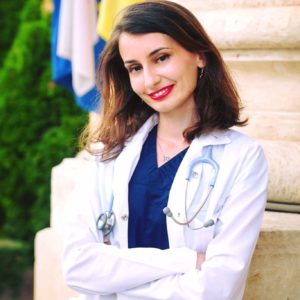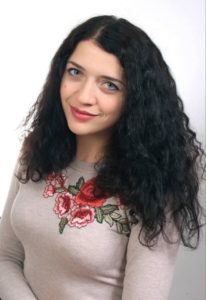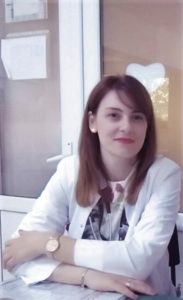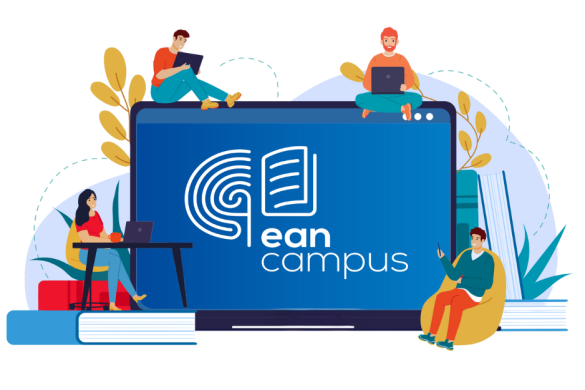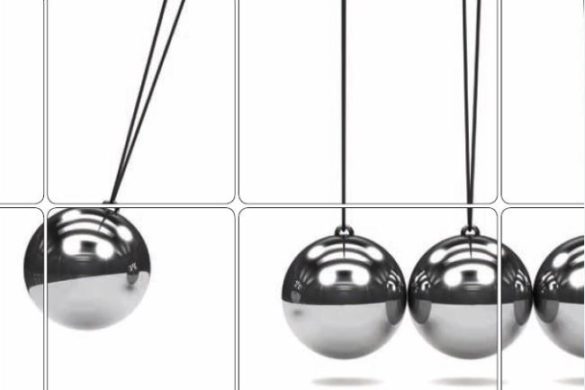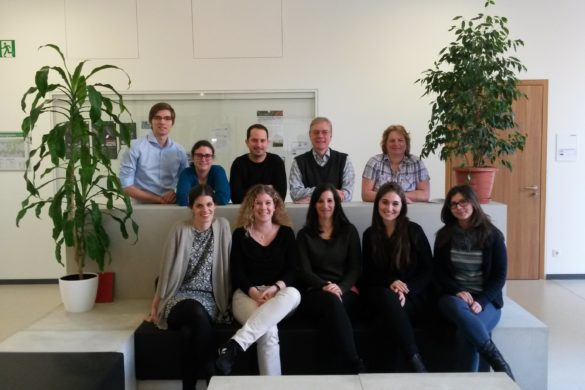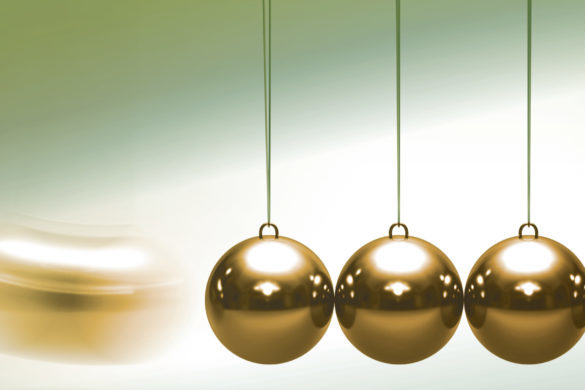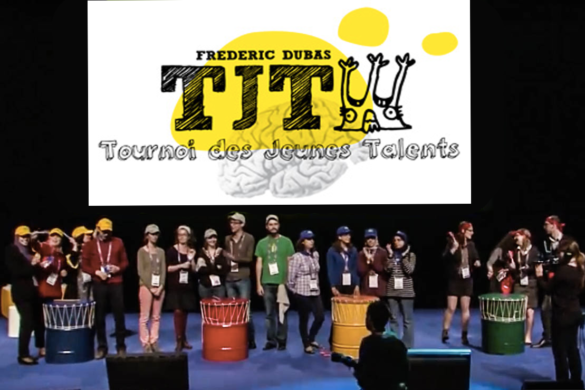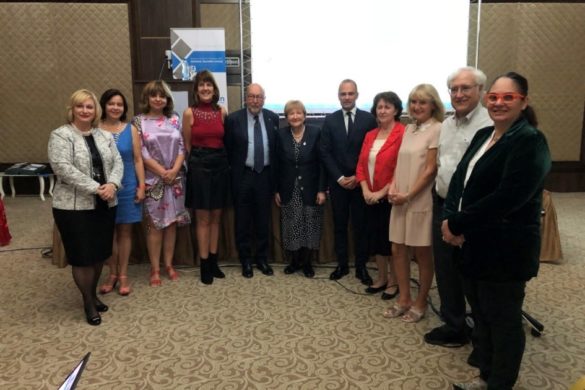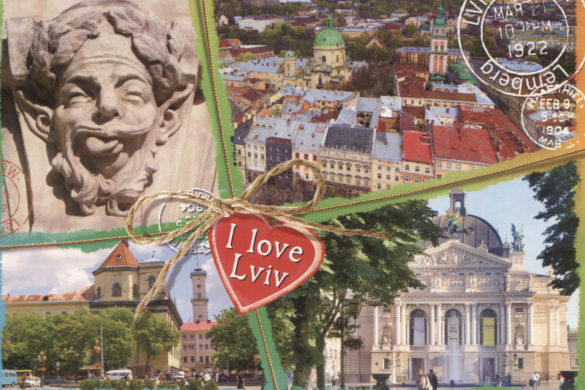Below are three reports from those who took part in the EAN clincial Fellowships in 2019. Keep visitng EANpages over the next months to read more reports from other particpants from 2019.
Want to take part in an EAN Clincial Fellowship? The deadline for applications for 2020 is October 31, 2019, so be sure to apply soon.
You can find further details on the Clinical Fellowship page on the EAN website.
Report 1
Fellowship recipient: Iulia Elena Petre, Romania
Duration of Fellowship: Six weeks
Hosting Department: National Hospital for Neurology and Neurosurgery, London/UK
By Iulia Elena Petre
During my stay at the National Hospital for Neurology and Neurosurgery, I attended Professor K. Bhatia‘s clinics in movement disorders, where I had the opportunity to go deeper into the whole spectrum of movement disorders, including Parkinson’s disease and other atypical parkinsonian syndromes as well as hyperkinetic movement disorders such as tremor, dystonia, chorea, myoclonus and tics. I viewed many different and rare cases of movement disorders involving a genetic background.
I also became familiar with psychogenic (functional) movement for the first time and learned the main features of this dissorder, such as how to reach the diagnosis and most importantly how to deliver the diagnosis to the patient, explain the nature of the symptoms, explore the possible triggering factors and discuss with them possible treatment plans.
As part of the programme, I attended botulinum toxin injection clinics, where I learned about the toxin pharmacokinetics, side effects and resistance, reviewed the anatomy and action of the muscles and was able to see patients with cervical dystonia, hemifacial spasms, tics and parkinson disease patients with sialorrhea .
During the clinic time, I was amazed by the dedication and passion of Prof. Bhatia as a neurologist and also as a professor. Although he had a lot of patients and quite a few residents around him, he always made time for each of us, asking us questions and giving us homework if we didn’t know the answers, and most of all teaching us how to think through each case. He also made us channel our attention towards reasearch and on the latest discoveries in this domain, always asking us about different articles that had presented similar cases with those seen at the clinic.
He or his fellows would always present the patient history and discuss with us the main diagnostics to have in mind before seeing the patient and of course paraclinical investigations and treatment options after the clinical examination.
Once a week, after clinic he showed us MDS video cases, where we could discuss the case phenomenology and have a better look at the eye movements abnormalities associated in some atypical Parkinsonian syndromes.
I was able to do all the homework and research reading after I gained access to the marvelous Queen Square Library, which holds a unique collection of neurology books from stroke, clinical neurology to movement disorders, but also historical and rare books, journals, and reprints.
Besides the amazing library, the National Hospital for Neurology and Neurosurgery is indeed a dedicated neurological and neurosurgical hospital, that can provide comprehensive services for the diagnosis, treatment and care of all conditions that affect the brain, spinal cord, peripheral nervous system and muscles. The University College London Hospitals NHS Foundation Trust is also a major international centre for high-quality research, teaching and training in basic and clinical neurosciences. I think that is a great place for young neurologists to do their training.
Twice a week the whole hospital takes part in a case presentation from residents from different wards who worked together to solve it. I could imagine this tight collaboration between wards in real life at the ward rounds. Also at the end of the week there are courses held by different neurologists from London on different topics in neurology.
The only downside was that London is a very expensive city. Overall it was an amazing experience where I learned a lot of interesting things that I am sure I could not have back home, and I made a lot of international friends and connections.
Report 2
Fellowhip Recipient: Alona Poplavska, Ukraine
Term of Fellowship: April 23, 2019 until May 31, 2019
Hosting Department: Neurology Department, Stroke Unit, University Hospital Inselspital, Bern/CH
by Alona Poplavska
Thanks to the European Academy of Neurology (EAN) and their support I was able to visit the Stroke Centre Inselspital, in Bern, which gives the best care for patients with stroke in an extremely short period of time, trains well-educated doctors and students and introduces new technologies and treatment methods, due to numerous clinical trials. All this provides an extraordinary positive breakthrough in science and in the quality of patient care.
During my stay, I had the opportunity to discover and investigate every step of acute and subacute stroke management, starting with patient arrivals to an emergency department. I could observe work organisation and procedures fulfilled before recanalisation and decision making in thrombolysis and thrombectomy.
I had the opportunity to observe the procedures of thrombectomy, which were explained in detail by interventionists.
A further step of patient care was diagnosis, secondary prevention and early rehabilitation on the Stroke Unit, which I was visiting for several weeks. Every morning started with daily round duties, where each case was discussed in detail. I am extremely grateful to Prof. Claudio Bassetti, Prof. Urs Fisher, Prof. Marcel Arnold, Dr. Mirjam Heldner and Dr. Ulrike Prange for sharing their professional opinions, knowledge and experience.
Work at the Stroke Unit is very well organised. Doctors, nurses, nurse assistants, ergotherapists, speech therapists, physiotherapists and other staff do their best to help patients to recover as quickly as possible. This is a highly qualified team, where everyone knows their obligations and honestly performs them. I admire how many people work towards caring for one patient.
Following the patient diagnostic path, I could observe work in Neurosonolab over several days in a week where I learned a lot of skills too.
During one week I visited a rehabilitation department, where I observed every stage of rehabilitation of patients. I got acquainted with new techniques (individual and group), the possible tools and devices that are used in Inselspital. I’ve chosen what I can bring to my hospital, what we can start with.
I am also impressed with the intra-hospital educational programme for doctors. Weekly meetings with neurosurgeons and neuroradiologists, lectures, discussions of clinical cases, reports on clinical trials, and medical conferences have greatly deepened my knowledge in stroke care.
In particular, I want to thank Dr. Mirjam Heldner for her constant help from my first day with every misunderstanding, clinical problem, organisational challenge and my personal questions. I would like to express my gratitude to Professor Claudio Bassetti, Professor Urs Fischer and Professor Marcel Arnold for accepting me at the Stroke Centre. Finally, I am grateful for the support of EAN, which gave me this wonderful opportunity.
In general, I have received invaluable experience and everything I had expected from my clinical fellowship in Switzerland. This programme became the basis for the improvement of my skills and enrichment of my knowledge. It has also provided me with a unique cultural experience and contributing to my personal and professional growth.
Report 3
Fellowhip Recipient: Elena Anca Tartea
Term of Fellowship: July 8, 2019 until August 2, 2019
Hosting Department: Neuromuscular Pathology Unit, Institute of Myology, Pitie Salpetriere Hospital, Paris/FR
By Elena Anca Tartea
It was a great pleasure to be part of the European Academy of Neurology (EAN) Clinical Fellowship Programme 2019. That is why I would like to thank the EAN team for giving me this unique chance and for their financial support. I want also to express my gratitude to Professor Bruno Eymard, head of the Neuromuscular Pathology Unit.
I am happy for having been involved in the Fellowship Programme 2019, and I consider myself very lucky because I had this unique chance to visit and also work for four weeks under the supervision of Professor Bruno Eymard in the Neuromuscular Pathology Unit, part of the Institute of Myology at the Pitié-Salpêtrière Hospital in Paris, which is one of the most prestigious research and treatment centres in the world.
I was welcomed very warmly when I arrived. During the first day I had a small tour of the hospital, Professor Bruno Eymard introduced me to the staff, and I learned some administrative things about the hospital and my future training.
My working day started at 9 am and I spent a lot of time in consultations with doctors specialising in different diseases (myotonic dystrophy, myasthenic syndromes, muscular dystrophies, lipodystrophies, hereditary neuropathies and many others). I spent a lot of time in the outpatient clinic, where I saw many patients suffering from different neuromuscular diseases coming either for a check-up or to receive hospital treatments such as intravenous immunoglobulin or immunosuppressive treatments. I also accompanied patients to multidisciplinary consultations (neurology, cardiology and functional rehabilitation). I was able to observe the management of patients with different neuromuscular diseases, which will be of great benefit for my future practice. I got actively involved in the different activities of the service. I also worked in a good atmosphere with the other residents.
During my stay, I was included in the scientific activities such as weekly staff meetings where different cases seen during the week were discussed. Every Thursday, I attended a scientific meeting where biopsies were presented and discussed and on Fridays there was a scientific meeting where different electromyographic aspects were presented and discussed. It was great for me to listen to the discussions at this level. All cases were evaluated in detail in order to adopt the best management for each patient. These scientific activities added a lot of experience and scientific knowledge and paved my way for further scientific plans.
One of the great benefits of this fellowship was the opportunity to attend muscle biopsies with Dr. Behin, who explained to me all the steps that should be followed in order to perform a correct muscle biopsy.
During my fellowship, I learned a lot about the diagnosis and treatment of neuromuscular disorders. I actually saw some diseases that I only read about but had never encountered before.
It was the experience of a lifetime, as I could see how doctors work in France, and I met a lot of interesting people and professionals who were very happy to share their knowledge with me. I am absolutely sure that the knowledge I gained will help me in my future practice.
It was a very fruitful stay that helped me scientifically and socially. I would strongly recommend the Neuromuscular Pathology Unit for other residents or young neurologists willing to extend their knowledge.
Once again, I am deeply grateful for the great opportunity!

